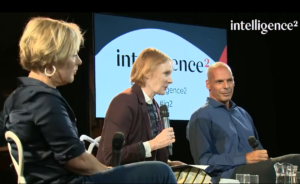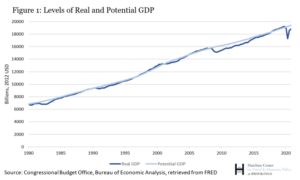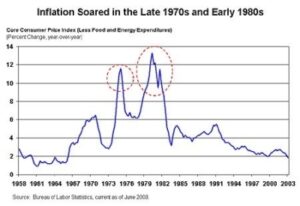There is no denying capitalism has brought the world incredible material wealth and prosperity, especially since the end of world war 2.
Having said that, many of the criticisms leveled against capitalism, most notably by Karl Marx, seem to have been unfolding as predicted, at least since the mid-1970s.
The rich are getting richer, the middle class is shrinking, industries are consolidating and are increasingly dominated by oligopolies, wealth inequality is growing wider, and the “peasants” while richer than peasants in any prior stage of human history, are getting angry.
Do we need to collectively put saving capitalism on our to-do list?
Can we retool capitalism to make it more inclusive before the pitchforks, metaphorically or literally, come out?
A debate on this topic was held as part of the “intelligence2” series where Anne McElvoy of The Economist magazine mediated a discussion between economist Yanis Varoufakis, who is apparently now a member of the Greek parliament, and Gillian Tett, an anthropologist and Financial Times contributor who has written a book on how anthropology can help us understand business.
The word “debate” doesn’t feel right here, because, in my opinion, the two debaters were in fairly broad agreement, using different words to describe the same things.
This blog post is a SUMMARY of this discussion about saving capitalism, not a word-for-word transcript. It is for the TLDR, or in this case Didn’t Watch crowd, who prefer reading a shorter summary.
Having said that, the link to the full discussion is below.
Saving capitalism debate: first Anne asked the audience
And overwhelmingly the audience believes capitalism can be fixed. That saving capitalism is a thing we should put some focus on.
The opening statement of Yanis
Yanus goes first and his opening comments are (in my opinion) very interesting.
First, he rejects the question as uninteresting. He then explains how in his mind capitalism is overthrowing itself in the same way that feudalism overthrew itself in the late 1700s.
He explains how capitalism has reshaped itself over time, and the capitalism of Adam Smith no longer exists.
He breaks capitalism down into the following distinct phases:
- In the time of Adam Smith, small businesses provided goods and services.
- The next phase was monolopistic big business capitalism that arrived with the industrial revolution.
- The next phase was big government capitalism that arrived with the New Deal and the Great Society.
- The next phase was financialized capitalism where financial services firms came to dominate the economy.
All those phases had two common characteristics:
- Profits fueled capitalism, and these profits were reinvested to expand existing businesses and create new ones.
- Markets were central to the functions of capitalism. Everything happened through markets: goods, services, labour, rents, everything.
The central pillars of capitalism were profits and markets, but those pillars of capitalism are quite visibly being replaced.
Today, what props up the economy is not profits, but rather central bank money, without which the global economy would grind to a halt, and the tech giants (who are in fact hugely profitable) are replacing markets with platforms, where one company controls the sale of everything within the platform. When you enter Amazon, you leave the market.
Today, when we look around the world we see capitalism with pockets of this new thing, in the same way as when Adam Smith looked around the world he saw feudalism with pockets of capitalism.
Yanis calls this post-capitalist system “techno-feudalism”.
To him, the important questions are:
- Is he right? Are we in fact moving into a system of techno-feudalism?
- And given that this techno-feudalism is at odds with the high competition capitalism of Adam Smith, how do we prevent us from becomming techno-peasants?
The opening statement of Gillian
Gillian opens by saying that she will defend capitalism, but not the current form of capitalism as it isn’t working.
She stated that as an anthropologist, she is trained to contrast what people say they do, with what they actually do.
She claims that while “the flag is Adam Smith” has been waved around a lot in recent years, what we have today is NOT what Adam Smith wrote about.
Adam Smith identified four components that are necessary to make markets effective:
- Free access to markets: People need to be able to take part in them.
- Free access to prices: People need to know what things cost, in a transparent way.
- The relationship between the managers of firms and the owners of firms needs to be clear.
- A shared moral, ethical, and legal framework must exist, which provides a foundation of shared values and shared trust.
Starting about two decades ago, on Wall St, all four of those components went missing.
- Powerful cartels on Wall St and in London restricted access to financial markets.
- There are many prices in finance that are visible only to finance industry insiders and not to the wider public.
- The owners became pension fund clients who outsourced money managemnet to asset managers, who (per her) were largely asleep at the wheel and didn’t understand what was happening inside companies and banks.
- Financial services firms jettisoned morality and ethics where they inteferred with making profit.
Gillian stated she agrees with Yanis that there are fundamental problems of monopoly power and a lack of transparency inside the tech sector.
She stated that what we have today is a gap between rhetoric (what is said) and reality (what is done).
However, she believes that competition, that using profits to reinvest in growth, and that innovation occurring to solve problems, are a good set of principles to drive an economy forward.
She ends by saying (and I’m paraphrasing) that Adam Smiths’ vision of competition, human connections, and money as a means to an end, is a vision we should continue to support.
Which I interpret as her saying that we need to fix capitalism (which I agree with), and she implies that saving capitalism is well within our reach.



